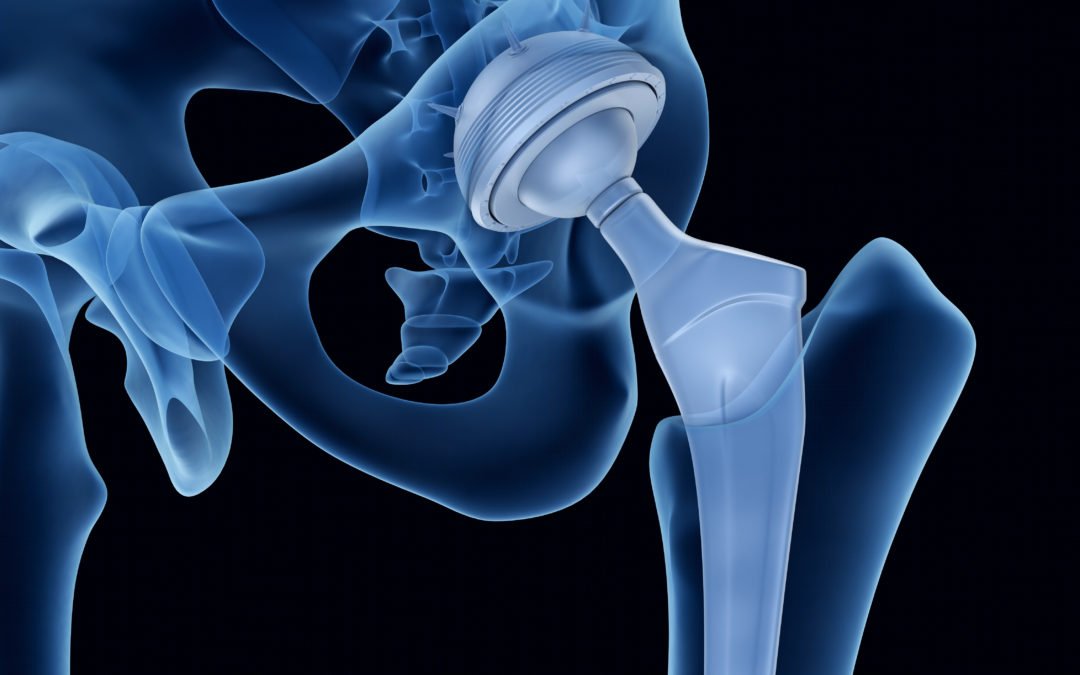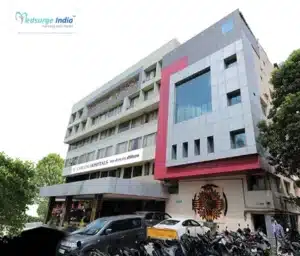Hip Replacement Surgery Cost in India
Unlock Exclusive Discount : Your Gateway to Premium Healthcare with Medsurge India Health Value Card.

Unlock Exclusive Discount : Your Gateway to Premium Healthcare with Medsurge India Health Value Card.


Dealing with hip pain or discomfort! You might be contemplating the option of hip replacement surgery in India. However, deciding to proceed with this surgery in India can be overwhelming. You may have numerous questions, including what the procedure involves, the various types of hip replacements offered, and, crucially, the costs associated with the surgery in India.
On this page, we will provide you with all the necessary information to help you make an informed choice regarding hip replacement surgery in India. We will share with you the fundamentals of the procedure, explore the different types of hip replacements available, and examine the financial aspects related to hip replacement surgery.
Hip replacement surgery cost in India starts from Rs 3.3 Lakhs ($4,000) and it can go up to Rs 10 Lakhs ($12,000) depending on the type of surgery your doctor might recommend according to your condition.
| Types of Hip Replacement Surgery | Cost of the Surgery |
| Unilateral Total Hip Replacement Surgery | $5800 to $7500 |
| Bilateral Total Hip Replacement Surgery | $7500 to $12,000 |
| Revision Hip Replacement surgery | $8000 to $8500 |
| Hip Resurfacing surgery | $7500 to $8500 |
When compared with the cost of hip replacement surgery in India and other well-known countries there is a very large price difference on it. A patient from the Western and Eastern countries can save up to 50% to 70% of the cost compared to their country.
| Countries | Cost of the Surgery(Starting) |
| India | $7500 |
| United State | $65,000 |
| United Kingdom | $68,000 |
| Australia | $42,000 |
| Turkey | $14,000 |
Helpful -:
The cost of hip replacement surgery can vary based on several factors:
Hip replacement surgery is a procedure that is used to treat problems in the hip joint, such as pain and swelling. These issues can cause difficulties in moving the hip.
This surgery often involves replacing damaged hip joints, which can be affected by various conditions like:
– Fractures
– Rheumatoid arthritis
– Osteoarthritis
– Osteonecrosis
Typically, hip replacement is seen as a final option when other treatments have not worked to relieve pain and swelling. Doctors will choose to do either a partial or total hip replacement depending on how serious the damage is.
Hip replacement surgery is a significant operation usually considered when other treatments like physical therapy and steroid injections do not relieve hip pain or improve movement. This surgery is often suggested for people who have various symptoms affecting their hip joint, which can greatly lower their quality of life. The reasons for this include:
There are several types of hip replacement surgeries tailored to meet various needs and conditions, including:
This surgery replaces both the ball at the top of the thigh bone and the hip socket with artificial parts. It is usually suggested for people with severe hip arthritis or major joint damage, aiming to reduce pain and enhance hip function.
In this procedure, only the ball of the hip joint is replaced while keeping the socket intact if it is healthy. This method helps certain patients by preserving the functional socket while fixing the damaged area.
This technique is mainly for younger, active people. It involves placing a metal cap on the damaged top part of the thigh bone, preserving more natural bone than a total hip replacement, which can be helpful for future surgeries.
When both hips are affected, surgeons may replace both joints at the same time, using new metal and plastic parts. This can greatly improve movement and lessen pain.
If a previous hip replacement fails or wears out, revision surgery is done. This involves taking out the old parts and putting in new ones. Because it is complex, it requires experienced surgeons.
Hip replacement surgery, like any major operation, has some risks and complications after the procedure. These risks can include:
– Heavy blood loss.
– Blood clots forming.
– Infection in the deeper tissues around the new hip.
– Breaking healthy parts of the hip during the surgery.
– Dislocation of the hip joint, especially in the first few months.
– Changes in leg length, where one leg might be shorter.
– Rarely, loosening of the hip joint over time.
– Rare nerve damage.
The need for hip replacement surgery depends on the condition’s severity, which can affect treatment costs. You can obtain the best treatment for partial or full hip replacement surgery at Medsurge India, where you can find top doctors and specialists at affordable prices.
India has become a favored spot for medical tourism, especially for orthopedic surgeries such as hip replacement. The nation provides advanced technology, expert surgeons, and affordable treatment choices. Opting for India for your hip replacement surgery allows you to enjoy:
Plus, you can take the chance to enjoy a vacation and discover India’s vibrant culture and history.
| Estimate Type | Estimated Cost (USD) |
|---|---|
| Total Package Estimate | USD 5,800 – USD 7,500* |
*Final cost depends on hospital, patient condition, and additional procedures/devices if required. Share your reports to get an accurate quote.
Estimated cost range in India: USD 5,800 – USD 7,500*
*For an accurate quote and hospital options, share your reports and preferred city/hospital.
A: Exercise, like walking and getting treated rightly and on-time with qualified doctors, would reduce the risk of going for hip replacement surgery in India. The surgery is the last option doctors go for.
A: Well, go for the low impact cardio exercises according to the expert surgeons. You must pick an exercise, like biking, swimming. All these exercises assist in surgery preparation and thus, enhance the indication of arthritis.
A: Dislocation of the hip happens when the femoral head (ball) leaves the hip bone socket (attachment).
A: The most widely recognized explanation behind loosening is the extricating of the artificial ball where it is made sure about in the femur or loosening of the socket. Wearing of the plastic spacer may likewise bring about the requirement for an update.
A: Revision medical procedure is performed when another medical procedure must fix a bombed hip embed. Failure can come from typical mileage or a defective device. These subsequent techniques are thought about complex and altogether obtrusive.
A: YES! A patient requires a blood transfusion after the surgery.
A: Expect your scars to be about 6 to 8 inches long that too along the side of your hips.
A: 6 to 10 weeks are required if a patient wants to discontinue using a raised seat of the toilet after the hip replacement option.
A: Patients can rest on the toilet side at whatever point they feel good. They may rest on their non-usable side for about a month with a pad between their knees.
A: You would require a bandage for around seven to ten days after your hip surgery. Although changing the bandage daily is required to eliminate itching and infection.
A: Feel free to immerse your hip in water after 14 to 17 days after reviewing whether the drainage from the incision site is present or not.
A: We suggest that NOT TO DO SO! it is because you should avoid using weight for the first 2 to 3 months after your hip surgery. However, if you are keener to do so, consult your doctor first.
A: An: A patient set off the machines at air terminal security, relying upon the kind of hip embed the patient has and the affectability of the security checkpoint hardware. At the subsequent visit, the patient may request to have a wallet card to convey while voyaging.
A: Only go for the activities that do not put excessive or extra weight on your hips like walking, gardening, playing golf. However, swimming is also advisory.
A: Weight put activities on hips you should skip or avoid extreme sports like hiking, trekking, cricket, football, and similar.
A: The hip replacement surgery lasts for more than 10 to 15 years. However, moreover, it depends upon the hospital, team of qualified doctors you select for your surgery.
A: YES! But after the 6 to 7 weeks of the surgery. Arising the non-operative leg first is suggested by the top-notch surgeons.
If you are looking for something specific about the hip replacement surgery in-depth, you can drop your queries in the comments section. We will prepare a separate blog for all the questions we will receive in our comments section.

Orthopaedic and Joint Replacement Surgeon
Senior Consultant
24+ years
Care Hospital, Banjara Hills, Hyderabad
View Doctor
Orthopaedic and Joint Replacement Surgeon
Clinical Director & Head of Department
38+ years
Care Hospital, Banjara Hills, Hyderabad
View Doctor
Ortho Spine Surgeon
Clinical Director & Senior Consultant
22+ years
Care Hospital, Banjara Hills, Hyderabad
View Doctor
Orthopaedic and Joint Replacement Surgeon
Head of Department
10+ years
Care Hospital, Bhubaneswar
View Doctor
Ortho Spine Surgeon
Senior Consultant
12+ years
Meitra Hospital, Calicut, Kerala
View Doctor
Orthopaedic and Joint Replacement Surgeon
Associate Consultant
18+ years
Meitra Hospital, Calicut, Kerala
View Doctor
Orthopaedic and Joint Replacement Surgeon
Consultant
18+ years
Care Hospitals HITEC City
View Doctor
Orthopaedic and Joint Replacement Surgeon
Consultant
15+ years
Care Hospitals HITEC City
View Doctor
Ortho Spine Surgeon
Consultant
9+ years
Care Hospitals HITEC City
View Doctor
Orthopaedic and Joint Replacement Surgeon
Senior Consultant
17+ years
Baby Memorial Hospital
View Doctor









By using our site, you agree to our Terms and Conditions, Privacy Policy and Refund Policy. Medsurge India provides reliable healthcare information and treatment options to support informed decision-making. Our content is designed to support and complement the guidance of your treating doctor, helping you feel informed and confident throughout your healthcare journey. We also Accept International Payments.

Copyright © 2025 NSM ONLINE SOLUTIONS PRIVATE LIMITED. All rights reserved.